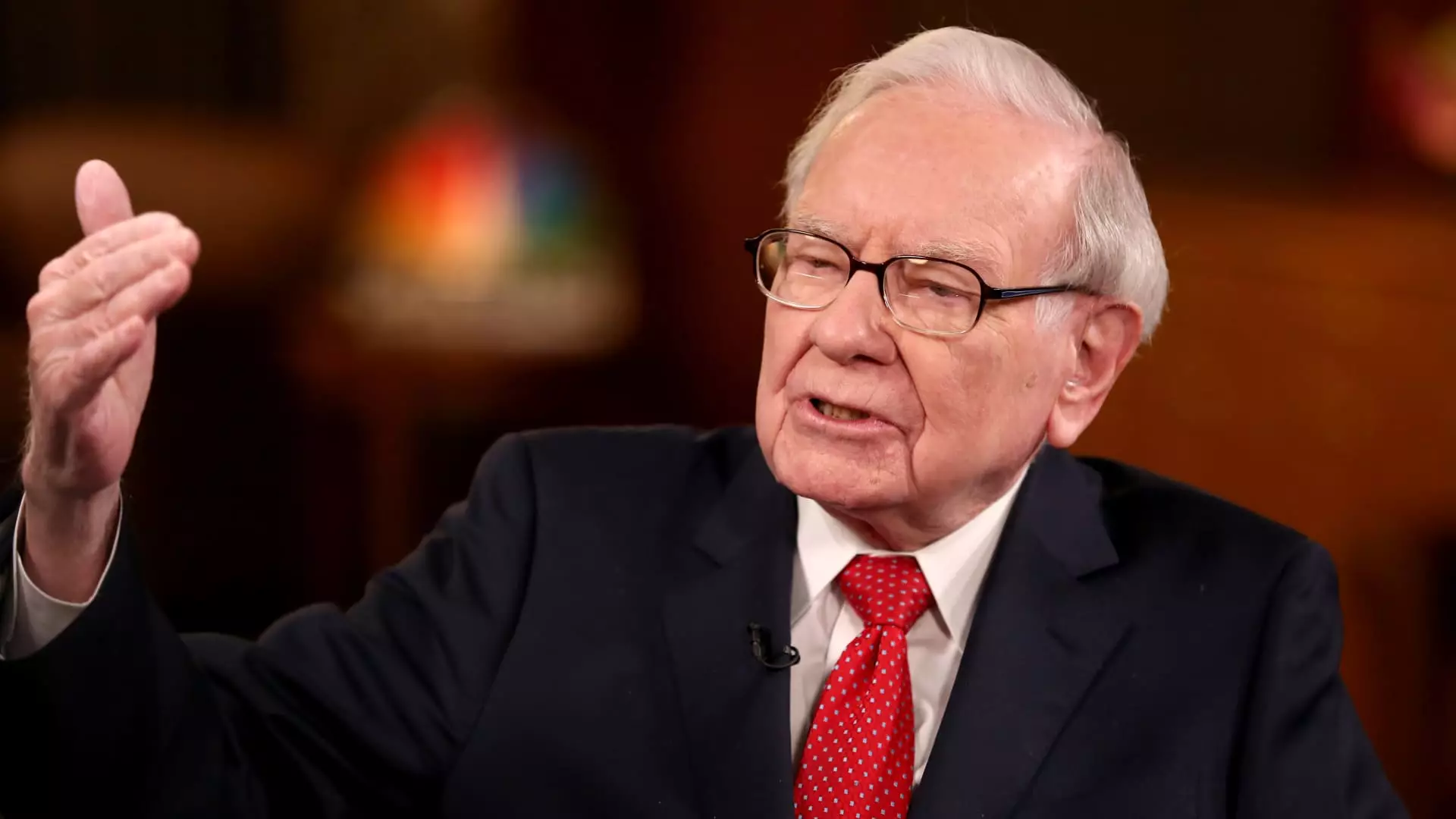In a world where information can be disseminated at the speed of light, social media is both a blessing and a curse. This dichotomy was vividly illustrated when President Donald Trump shared a video on Truth Social that claimed he was intentionally crashing the stock market in a strategic maneuver, supposedly backed by none other than the venerable investor Warren Buffett. The notion that any decent investor would co-sign such reckless behavior speaks volumes about the sensationalism that often defines our digital landscapes. Ironically, it was Buffett himself who was forced to deny any such endorsement, highlighting the distorted interplay between politics and the economy, exacerbated by social media.
The video in question, which Trump amplified, suggested that the president’s current strategies are designed to deliberately tank the market to prompt lower interest rates. This convoluted logic seems to rely heavily on fear and misunderstanding rather than any tangible economic strategy. When a president finds himself using dubious assertions to justify policy decisions, we ought to be alarmed rather than entertained. Trump’s reliance on misinformation is detrimental to not only his credibility but also the health of our economic discourse.
The Price of Endorsements
Buffett’s reaction was strikingly assertive; his conglomerate, Berkshire Hathaway, flatly rejected all claims circulating on social media that he had made any comments endorsing Trump’s economic decisions. It’s a characteristically Buffett move—one aimed at protecting his reputation and emphasizing the necessity of clear communication in a cluttered information space. His insistence on projecting factual information is a reminder that the marketplace should be governed by data and reason, not sensational claims. Unfortunately, the marriage of politics and finance often resembles a toxic relationship, with public figures seeking validation at the cost of truth.
Buffett’s experience, wealth, and wisdom should prompt leaders to treat his words with the utmost respect, yet the reality remains that misinformation travels faster and further than the truth. It’s a reality often manipulated by those in power to create narratives that serve their interests, and this incident shines a spotlight on how easily the lines can be blurred. The old saying, “don’t believe everything you hear,” has never been more relevant.
Berkshire Hathaway’s Stance
In an age defined by instantaneous digital communication, Buffett’s decision not to comment further until Berkshire’s annual meeting serves as a calculated approach to avoid being pulled into the political fray. His reluctance to wade into tariff discussions—an area where he has previously expressed vehement opposition—suggests a strategic retreat from potential conflicts. When a respected business figure like Buffett refers to tariffs as “an act of war,” it’s astounding that such rhetoric often falls on deaf ears in political circles.
It’s deeply troubling that public policy can be reduced to sound bites and social media tags, whereby the careful deliberation of economic strategies is overshadowed by populist narratives. Economists and investors often deal in probabilities and analysis; the slings and arrows of political commentary, on the other hand, lack the necessary depth and can lead to chilling consequences.
Implications of Misinformation
As we observe Buffett fortify his legacy against the onslaught of misinformation, one has to wonder what the longer-term implications of this climate will be. The fact that real economic concepts can be dismissed or manipulated for political gain poses a grave threat not just to investors but to the very fabric of our economic systems. We risk entering a volatile terrain where decisions are driven less by sound economic principles and more by catchy slogans and viral videos.
True, misinformation and sensationalism can spur interest and engagement, but at what cost? When political figures stoop to leveraging the realities of financial markets as mere fodder for their narratives, we put the very backbone of our economic survival at risk. It’s not simply about guarding one’s reputation; it’s about maintaining a marketplace where trust is fundamental, and accurate information reigns supreme.
In any democracy, the fusion of politics and economics is tantalizing yet dangerous. The responsibility lies with both public figures and citizens alike to ensure that their information consumption is grounded in reality rather than deceptive spin. The influence of social media must be addressed, lest we veer towards a future where economic discourse becomes as chaotic and divisive as the political arena has become.

